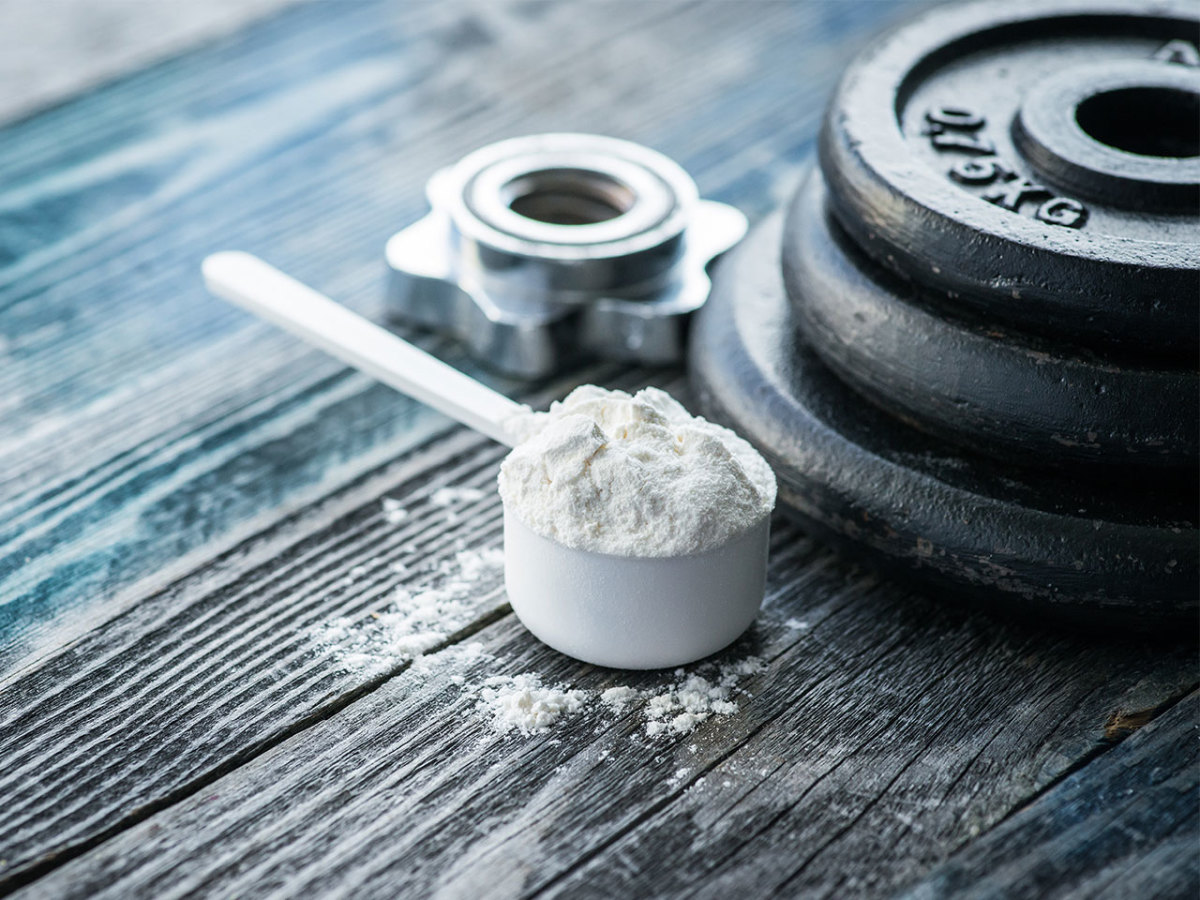If you’re someone who’s into dietary supplements like vitamins and collagen powder, you’ve probably noticed another popular option on the shelves: creatine. Usually taken as a powder and often mixed into shakes, oatmeal, or yogurt, creatine is a staple in the bodybuilding and athletic communities. Its popularity is due to its ability to help build muscle and enhance workout performance.
What Is Creatine?

Creatine is a nitrogenous organic acid naturally found in vertebrates. Our bodies produce it in small amounts, but the most beneficial sources come from creatine-rich foods such as eggs, red meat, milk, and seafood.
Stored in muscle tissue, creatine aids in recycling and utilizing adenosine triphosphate (ATP), the primary energy source for activities like running and weightlifting. It also plays a role in energy metabolism and cognitive function. Supplementing with creatine powder can be particularly beneficial for anyone, especially vegans or those who avoid chicken and dairy products.
Benefits of Using This Supplement
Increased Power and Endurance
Our muscles rely on ATP, produced by our phosphagen energy system, for short, quick bursts of energy—think running, explosive movements, and heavy lifting. Creatine enhances ATP production, allowing for greater performance during intense, short-duration exercises.
While endurance athletes might not see as much benefit since their activities depend more on the aerobic energy system, creatine has a “cell volumizing effect.” This means it draws more water into muscle cells, which, over time and with resistance exercise, can increase muscle glycogen stores and protein synthesis, boosting muscle endurance and reducing protein breakdown.
Increased Muscle Size and Strength
One of creatine’s most notable benefits is its ability to increase muscle size and strength, making it one of the most effective supplements for these purposes. Initially, the gains come from increased water retention in muscle cells. However, long-term supplementation activates pathways that promote muscle growth, strength, and performance.
Studies indicate that creatine can raise levels of insulin-like growth factor 1 (IGF-1), which is crucial as we age and lose muscle mass. IGF-1 helps maintain lean tissues, and keeping its levels stable can help preserve lean muscle mass, which is directly linked to long-term health and longevity.
Enhanced Brain Function
ATP isn’t just for muscles; the brain uses it for complex tasks too. By using this supplement, the brain can produce more ATP, which can increase dopamine levels and improve mitochondrial function.
These benefits are particularly noticeable in older adults, helping maintain or enhance memory recall and potentially aiding in the prevention or treatment of chronic neurological disorders.
Whether younger individuals can reap the same brain function benefits from creatine is still uncertain, and more research is needed to determine its effectiveness for this age group.
Promoted Weight Gain
Creatine can assist in weight gain, but it’s important to note that this is mostly “water weight” due to fluid retention in the muscles. This retention can cause muscles to appear larger and may make you feel bloated or puffy, particularly in the arms, legs, and stomach.
Some people who take creatine supplements gain around one to three kilos, primarily due to this fluid retention.
Types of Creatine Supplements
Creatine Monohydrate
This is the most common form of creatine supplement. It consists of a creatine molecule bonded to a water molecule, making it water-soluble and easily absorbed by the intestines.
Most research on creatine has focused on creatine monohydrate, demonstrating its effectiveness in improving physical performance, muscle strength, endurance, mass, and maximum power output.
Creatine Hydrochloride (HCL)
Hydrochloride (HCl) is creatine bonded with a hydrochloride salt, which enhances its absorption. Typically found in powder form, it’s a great addition to post-workout formulations and protein shakes.
Creatine Ethyl Ester
CEE is creatine with an ester attached, resulting from the combination of carboxylic acid and alcohol. Users often report less water retention with CEE, giving a leaner appearance. However, many people find its taste unpleasant.
Creatine Gluconate
Creatine gluconate is combined with glucose, improving intestinal absorption and muscle uptake.
Recommendations When Using This Supplement

Timing Your Intake
Although you can take a creatine supplement before or after your workout, research suggests that post-workout is ideal. Experts typically recommend taking it within an hour of your workout to maximize benefits.
If you don’t work out, incorporating creatine into your morning routine can also be effective.
Considering Your Dose
For boosting hydration, protein and carbohydrate metabolism, and brain function, a daily dose of five grams of creatine is recommended.
Some people start with a “creatine loading” phase, taking four to five five-gram doses per day for the first week to rapidly increase levels. After this phase, the maintenance dose is usually five grams per day.
Staying Hydrated
Creatine causes muscles to retain water, so it’s important to increase your water intake to stay hydrated. While the general recommendation of eight to ten glasses of water per day is a good starting point, consider consulting a dietitian if you’re concerned about your hydration levels while supplementing with creatine.
Combining with Protein and Carbohydrates
Research has shown that creatine is better absorbed when taken with carbohydrates. Therefore, taking your creatine supplement with a carb and protein-rich snack or meal can help maximize its benefits.
Conclusion
Creatine is a powerful supplement that can enhance muscle size, strength, and endurance, as well as improve brain function and promote weight gain. Whether you’re an athlete looking to improve performance or someone seeking to boost cognitive function, creatine can offer significant benefits. By choosing the right type of creatine and following best practices for supplementation, you can maximize the advantages of this popular supplement.

Leave a comment